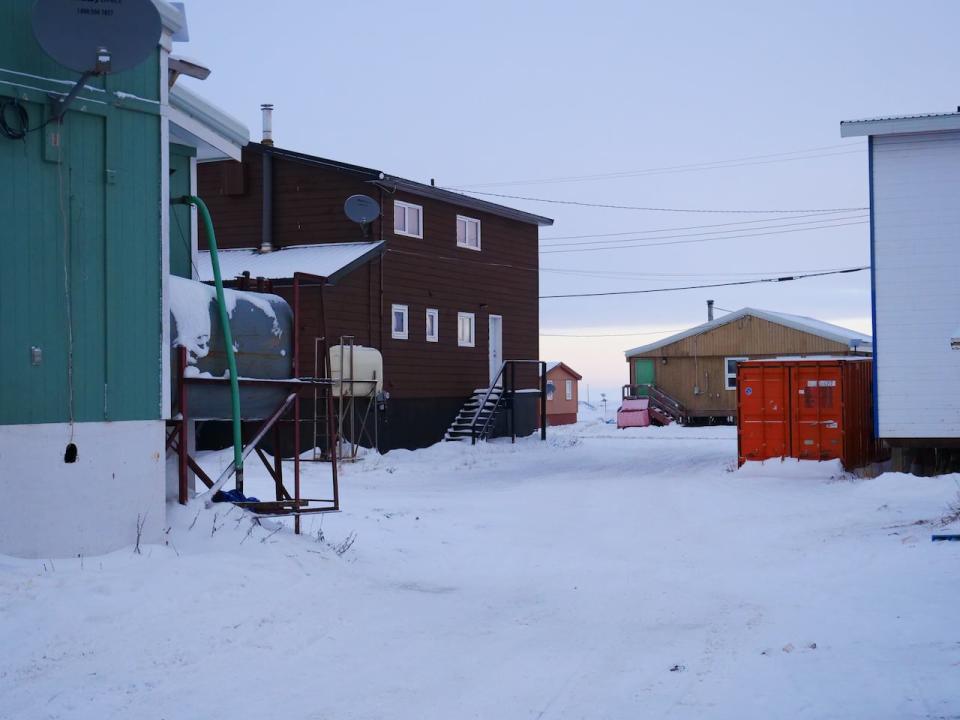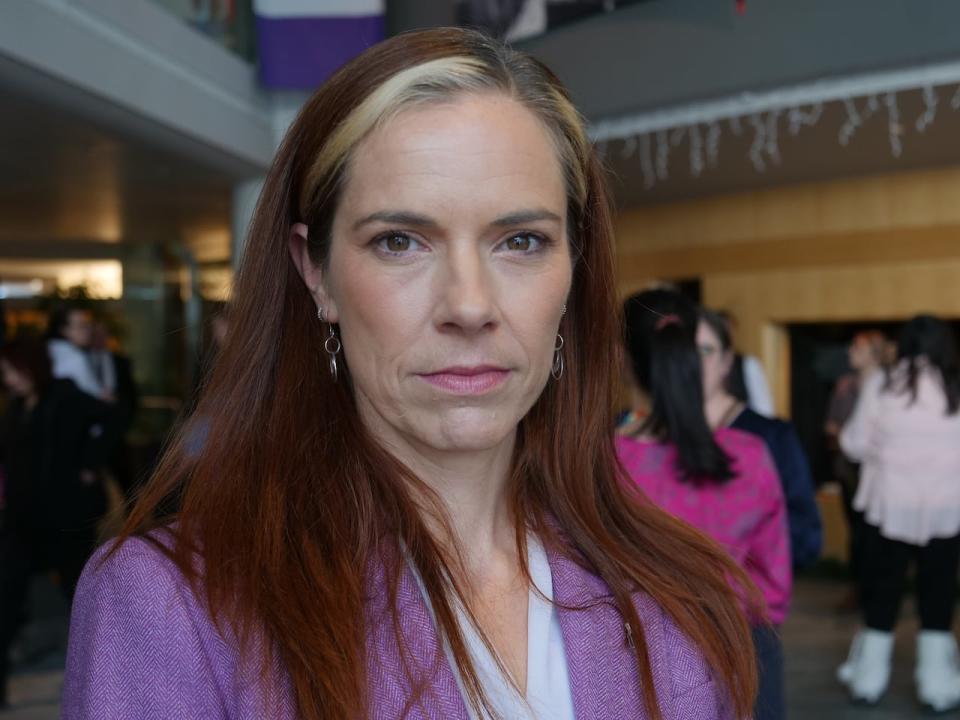N.W.T.'s carbon tax exemption on heating fuel good, but not enough, says former MLA

To Jackie Jacobson, the carbon tax is nothing less than the "worst thing that ever happened in our country."
The former Nunakput MLA, who lives in Tuktoyaktuk, N.W.T., was responding to this week's announcement that the territorial government would be exempting home-heating fuel from the tax, for a three-year period starting in April.
To Jacobson, that's good news — but he also says that it barely scratches the surface of the issue.
He wants the tax scrapped altogether, arguing that it's driving up prices for everything in his remote northern community, not just diesel heating fuel.
"It's really impacted everybody on how we're surviving up here," he said.
"People are having to pick and choose what bills they have to pay every month. You know, you got single mothers that are trying to feed their children, you got single fathers... I mean, I could go on and on."
That echoes a call N.W.T. Premier R.J. Simpson made shortly after his election last fall, when he began advocating for the N.W.T. to be granted a blanket exemption from the carbon tax, given how high costs already are in the territory.

Houses in Tuktoyaktuk last November. (Julie Plourde/Radio-Canada)
The diesel heating fuel exemption announced this week in the N.W.T. was no big surprise, even if the timing was unexpected — the territory's finance minister had earlier said that it was in the works but had been delayed by last fall's territorial election, among other things.
Minister Caroline Wawzonek had also attributed the delay to her government's consideration of how a diesel heating fuel exemption would impact all N.W.T. residents. She said she didn't want to create a disadvantage for those heating their homes with propane.
But the plan announced this week does leave out those who heat with things other than diesel. Wawzonek said the territory ultimately didn't have much choice, as it mirrors the federal exemption.
"It isn't really up to us what we're allowed to exempt," she told CBC News on Thursday.
"Despite, I think, asks from many corners of the country, they have not exempted propane or LNG. And so we're in the same situation, we're not able to exempt those types of fuel."
Cost of living offset payments to decrease in July
The diesel heating fuel exemption means many N.W.T. residents will see less money coming back to them through the territory's cost of living offset (COLO) payments — even if they heat their homes with propane or natural gas.
These payments, automatically issued to residents four times annually, were introduced in 2019 and are intended to help offset the expense of the carbon tax on all things, not just heating fuel.
While the exemption itself rolls out in April, changes to COLO payments won't be seen until July 1, the N.W.T.'s finance department said in an email. That's because COLO payments are typically increased each year, starting in July, to compensate for annual carbon tax rate increases.
This July, instead of seeing increases, many residents will see their COLO payments drop.

The heating oil exemption means N.W.T. residents 'are going to see generally a decrease' in annual cost of living offset payments, said Finance Minister Caroline Wawzonek. (Julie Plourde/Radio-Canada)
"Decreasing it is a reflection of the fact that we now have less revenues coming in," said Wawzonek.
COLO payments vary depending on where residents live, with the territory's communities sorted into three zones to reflect the varying cost of living. People in "zone A" communities — including Yellowknife, Fort Smith, Hay River and others — receive the lowest payments, while those in "zone C" communities — Norman Wells, Sachs Harbour, Tulita, and others — receive the highest payments.
This July, payments will decrease in zones B and C, while people in zone A will see their payments either stay the same or — in the case of children — increase marginally.
In Jacobson's community of Tuktoyaktuk ("zone B"), the annual COLO payment will drop from the current $483 per adult to $451, and from $535 per child to $515. So, for a family of four living in Tuktoyaktuk, the annual COLO payment will go from $2,036 to $1,932.
Offset makes little difference, says Jacobson
Jacobson, though, argues that those COLO payments are making little difference in his community, anyway. The cost of living has just risen too steeply.
"We're being hit hard. This is probably the toughest winter I've seen and the people are having to struggle," he said.
"I really hope our territorial government and our new premier R.J. Simpson can do something with the prime minister of Canada, to axe the tax for the N.W.T., because it has to be dealt with sooner than later."
The news of the exemption this week was welcomed by many MLAs, though some took issue with how it was announced. The finance department announced it in a news release at 6 p.m. Tuesday, on the first day of the Legislative Assembly's sitting.
Yellowknife Centre MLA Robert Hawkins told CBC News in an email that he's pleased that the government has acted on the exemption, after pressure from MLAs.
"However I think it is fair to say, I too was surprised by [the] way it rolled out ... we are receiving policy direction through the media," he wrote.

 Yahoo News
Yahoo News 
